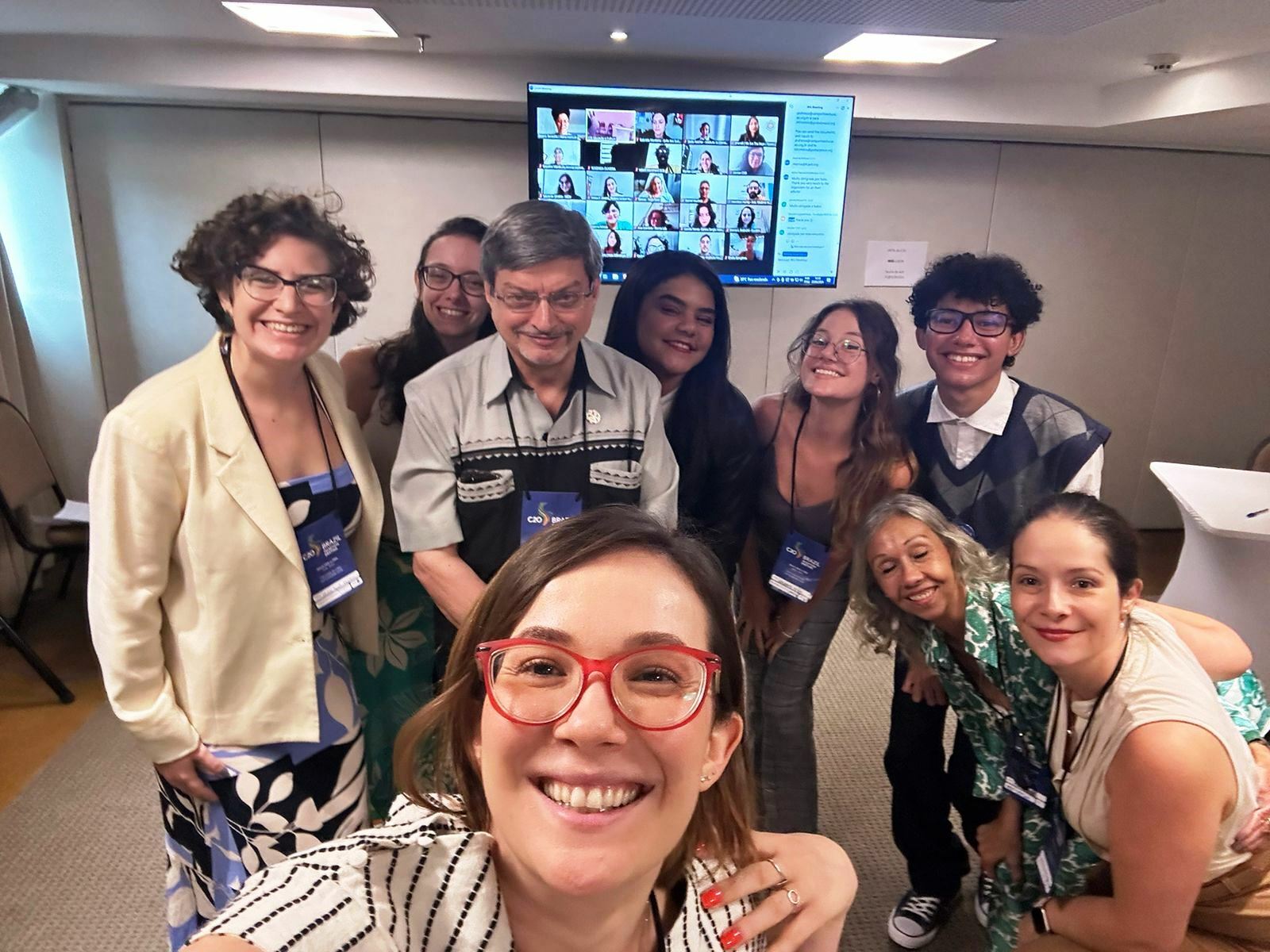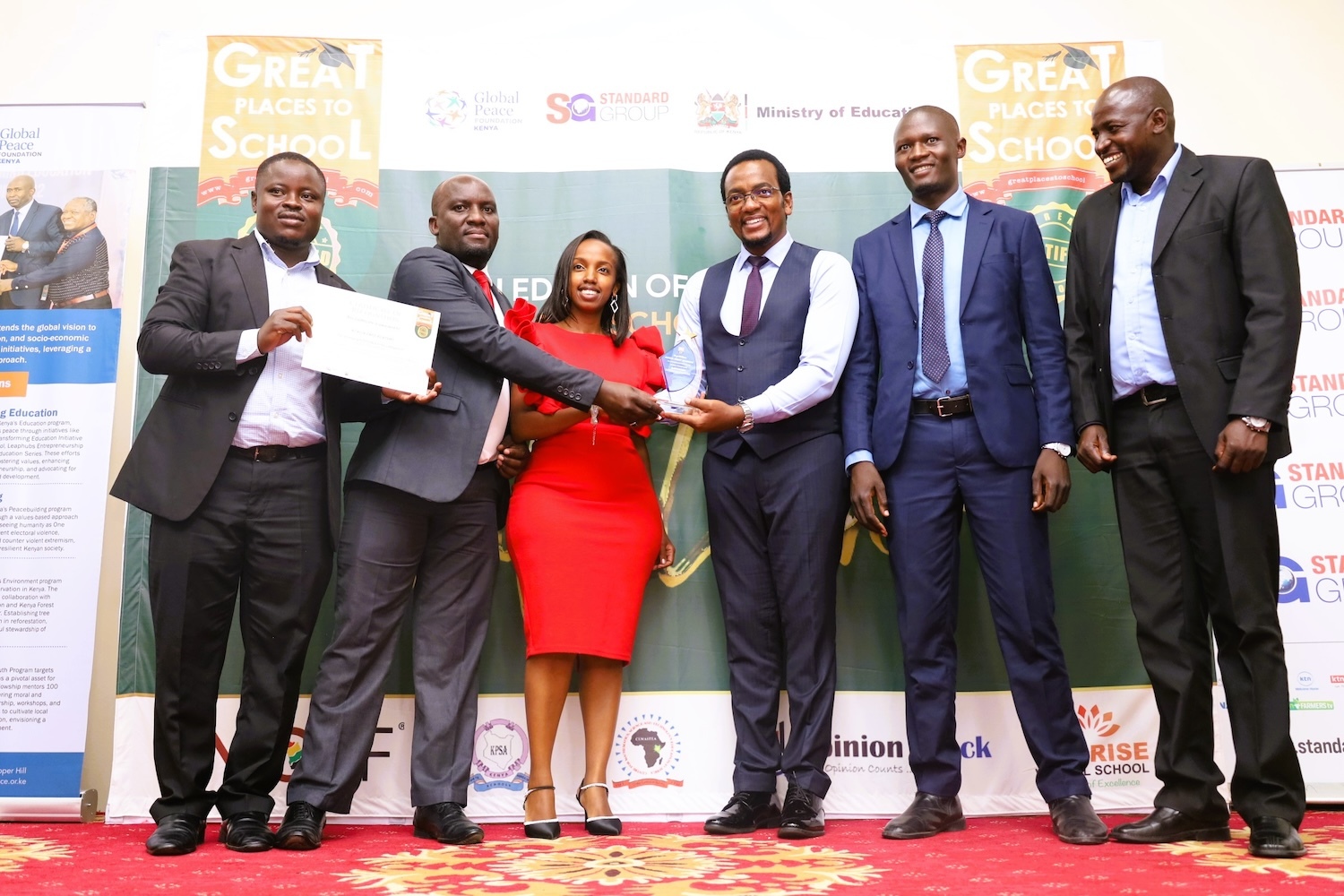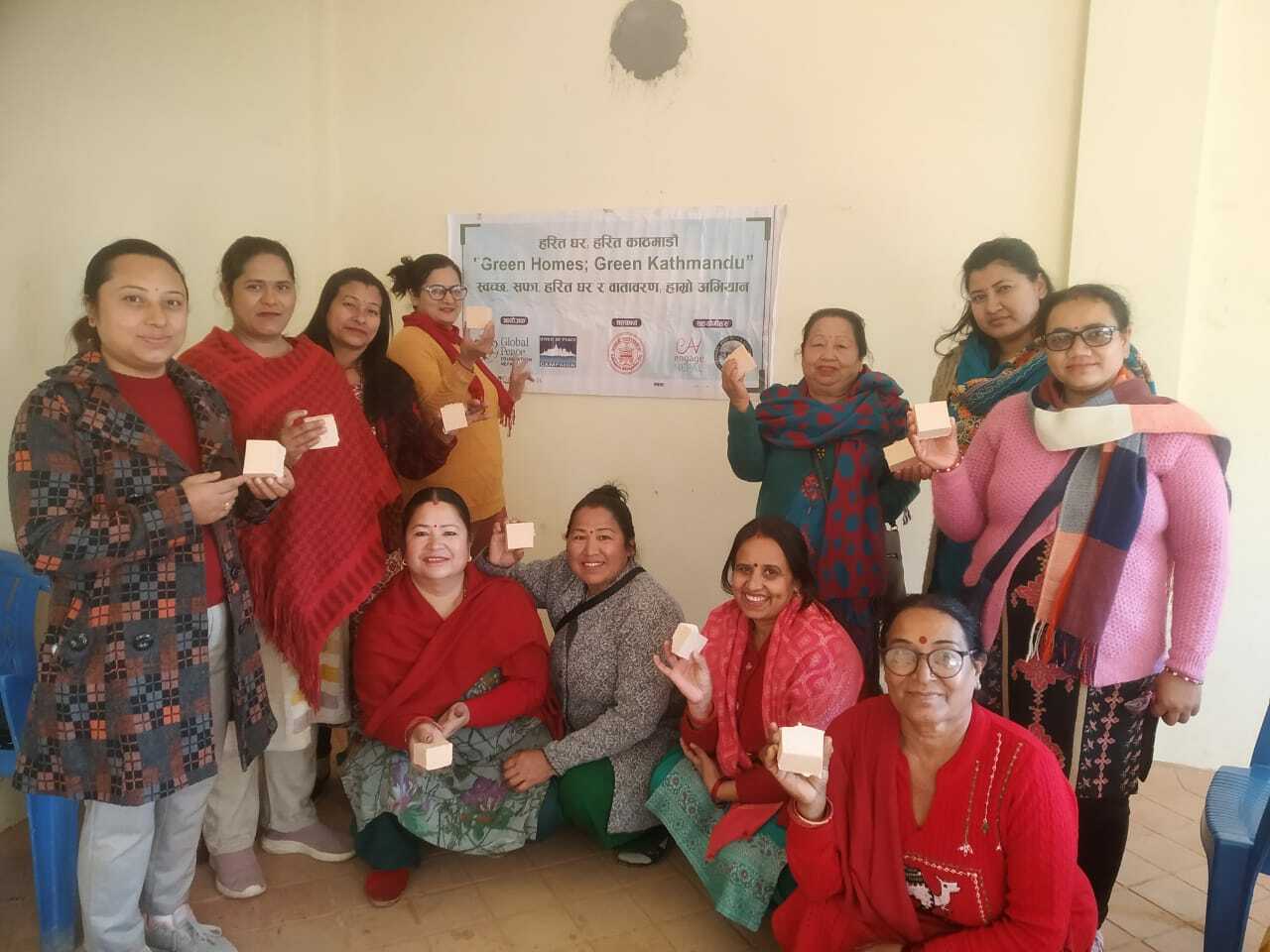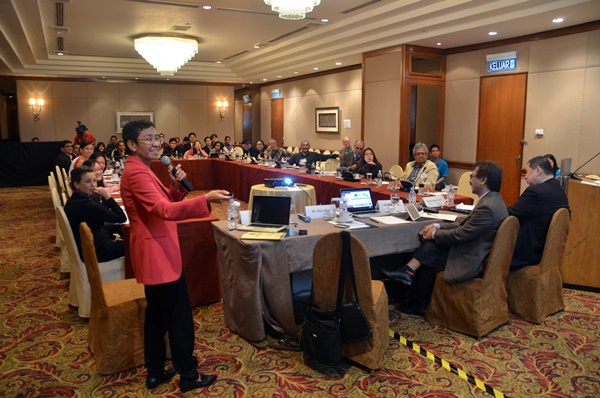
Rappler CEO Maria Ressa discussed the role of technology in addressing challenges facing the media at the 2013 Global Peace Convention in Kuala Lumpur.
Thirty seven members of media and communication organizations in ASEAN region addressed the ethical challenges and professional obligations of media coverage at a forum, “Ethical Reporting: Journalism with a Conscience,” on December 7, 2013 in Kuala Lumpur, Malaysia.
Dr. Eric Loo, professor of journalism at Australia’s University of Wollongong, moderated the discussion on the state of reporting on religion and race in Malaysia, Indonesia and the Philippines.
Dr. Loo pointed out that the seating order of the speakers reflected the order of their respective countries’ standing in a recent Freedom House rating of press freedom: Malaysia 64 (not free), Indonesia 49 (partly free), and Philippines 43 (partly free) out of a rating of 96 for a total of 196 countries.
Bernama general manager Datuk Yong Soo Heong acknowledged that news organizations must be sensitive to reporting on ethno-religious issues rather than to avoid it. Jakarta Post senior editor Endy Bayuni advised journalists to acknowledge their identity and position when reporting on stories where religion or ethnicity is a factor, yet remain detached and objective.
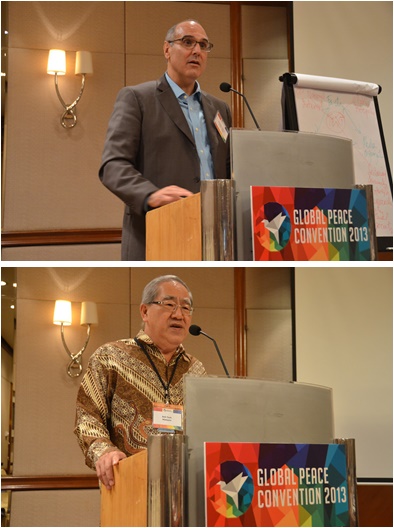
United Press International President Nicholas Chiaia (top) and Bob Teoh, a columnist for Sin Chew Daily, discuss the need for a common code of ethics for news reporting.
Mr. Bayuni also recommended that editors recognize the important role of religion in society by assigning their best reporters to cover religion and to provide proper training to report with sensitivity and professionalism.
Rappler CEO Maria Ressa discussed the role of technology in addressing challenges facing the media. She illustrated the ways in which Rappler.com, which was founded two years ago, utilizes social media principles to become the third most visited news site in the Philippines. She also explained how crowd-sourcing helped Rappler meet the needs of people during the recent typhoon.
An afternoon forum, “Ethical Journalism: the Way Forward,” invited the Malaysian media community to discuss concrete steps to improve standards of reporting on race, ethnicity and religion. United Press International President Nicholas Chiaia moderated a discussion with three panelists who are active in promoting media reforms in Malaysia. He also spoke about the need to outline a set of shared core values which journalists and media organizations could defer to and be held accountable to.
“Conscience” in the newsroom
Bob Teoh, a columnist for Sin Chew Daily, discussed the so-called “conscience clause” relating to the workplace and outlined efforts to introduce to include the clause in newsroom work contracts as a way to support journalists. “There needs to be a workplace reform where media organisations come up with an acceptable code of ethics and inform their journalists about it,” he said.
MiDAS director and columnist Dr. KJ John argued that the workplace should be a reflection of human conscience. He said that public integrity, national interests, and sectarian or community interests should be taken into account by media professionals.
Datuk Zaid Ibrahim noted the need for a coalition of journalists, as well as an index or ranking system of news organizations in the region, to promote ethical reporting. “This can be done by an independent source, and the results will at least show us what is wrong with the media reporting in Malaysia,” the former law minister said.
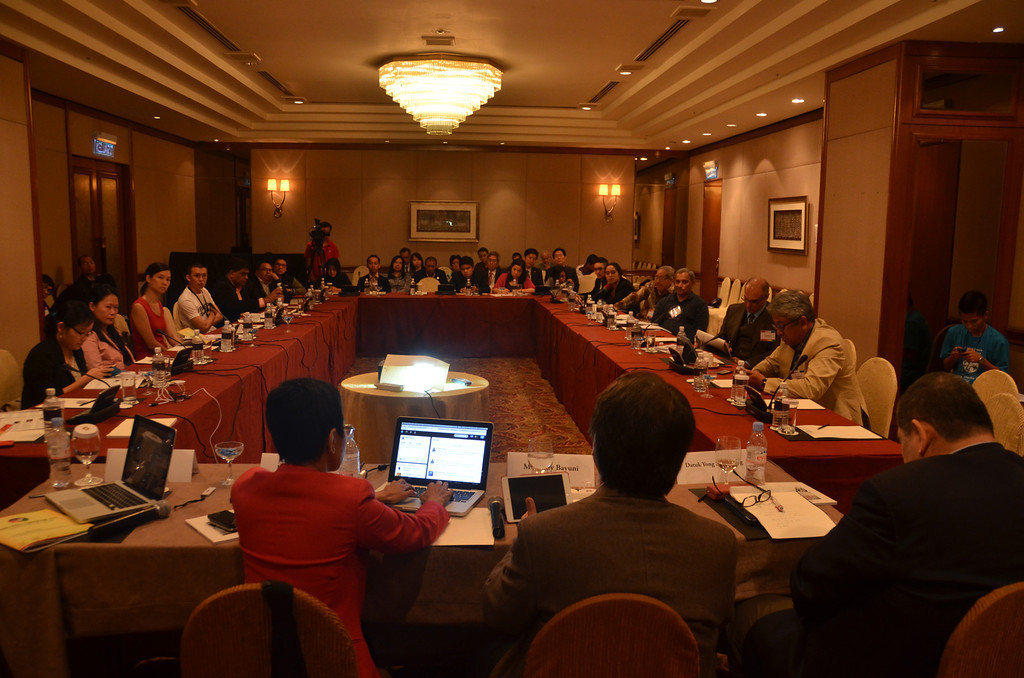
The media forum, “Ethical Reporting: Journalism with a Conscience,” in Kuala Lumpur, Malaysia.
The session concluded with a resolution to draft a set of core values for journalists in the region. UPI Next, which organized the forum, agreed to work with forum panelists to draft such a code and to develop a coalition of news organizations committed to ethical practices based on shared values.
The forum was part of the 2013 Global Peace Convention, “Unity in Diversity: Building Social Cohesion for Sustainable Peace,” hosted in Kuala Lumpur on December 5-8, 2013. See also the report on the media forum in The Star, the largest English language newspaper in Malaysia.
—Reported by Harumi Gondo, UPI Next

